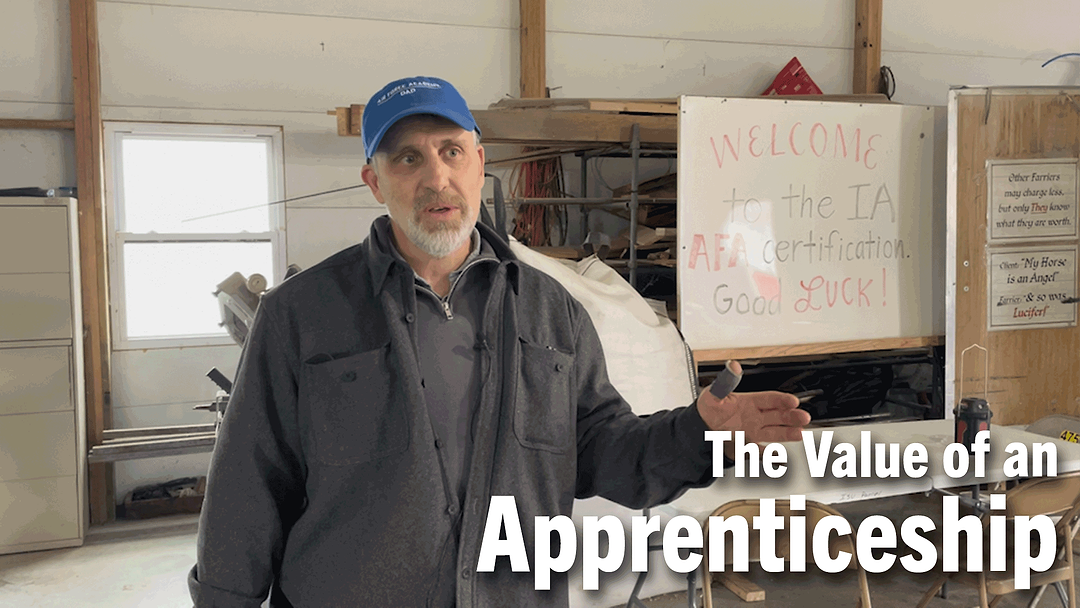Iowa State farrier Doug Russo explains the value of an apprenticeship and how it can set you up for a successful career.
The American Farrier’s Association examiner — along with Georgia farrier and fellow examiner Eric Gilleland — oversaw the April 2025 Iowa certification, hosted by the Iowa Professional Farriers Association.Full Transcript
Doug Russo:
The value of an apprenticeship, I think is, um, it's almost even hard to put a percentage or a dollar amount on. It's, uh, it's a value of education that you can't get in school. It's, it's real-time work, it the barns in the atmosphere that you're gonna be spending the rest of your career. And I think the, the biggest part of the relationship when you have a good mentor is you're learning to manage a business. You're learning to communicate with clients, you're learning to communicate with veterinarians. And no matter how long the length of of your school curriculum is, if it's 16 weeks, 32 weeks, six weeks, that's only enough to really prepare you to help somebody. Um, there's, you can't see feet in that amount of time to, to understand or determine sometimes proper length or balance or different things like that. So it's the comfort of knowing that you have somebody that's been there and done that, that can look over your shoulder and say, yeah, that's a good job.
Or maybe a little more here. And then over time you start to see what your mentor's looking for and it becomes easier and easier to achieve it. I think the biggest benefit too is, is to not put a hard time limit on the length of your mentorship. So don't go into this thinking, well, I'll mentor for a year or, or apprentice for a year. I'll apprentice for two years. Uh, personally what I did when I started my apprenticeship was I didn't really have an an end goal or an end thought. And within a year's time in that apprenticeship, I was making enough to provide a living. And then little by little, because Dick [Becker] was not no longer taking new clients, he was starting to pass his clientele onto me. So I never had to shoe rank horses in the sun and in the rain that were covered in mud, I worked on high end horses and got paid top dollar because that was the clientele that Dick passed to me.
So I worked for Dick a total of maybe four years. Um, and, and just so kind of slowly phase the apprenticeship out and right into my own clientele. When you come out of a school, you have, you're fa if you, if you're not planning to go the route of an apprenticeship, you're looking at a year to two years to build a clientele. And in that time you're gonna work on, on the lot, you're gonna have to weed out the dregs and the nasty horses and the clients that don't pay. And it makes better sense to have your mentor do that for you because they've already developed that reputation. So I think that's really the, I I think we gotta back ourselves up and, and slow ourselves down and take our time. I, I don't know statistically what it, what the difference might be between those who have mentored and those who haven't.
We had a conversation earlier today with some other farriers and I feel like the, the farriers that we see that are shooing after five to 10 years out of, out of farrier school are the ones that did, took the time to do the apprenticeship, whereas the, the dropout rate is gonna be much higher for the ones who don't bother doing the apprenticeship. So, and you don't have to prentice with just one person. A lot of people think that's the case too. You could ride with several different farriers and, and Dick would always encourage me to do that. If there was a day he was slow, he would farm me out to work for somebody else. And I got to see how a lot of the different things were done. So, I definitely think that's a good idea.







